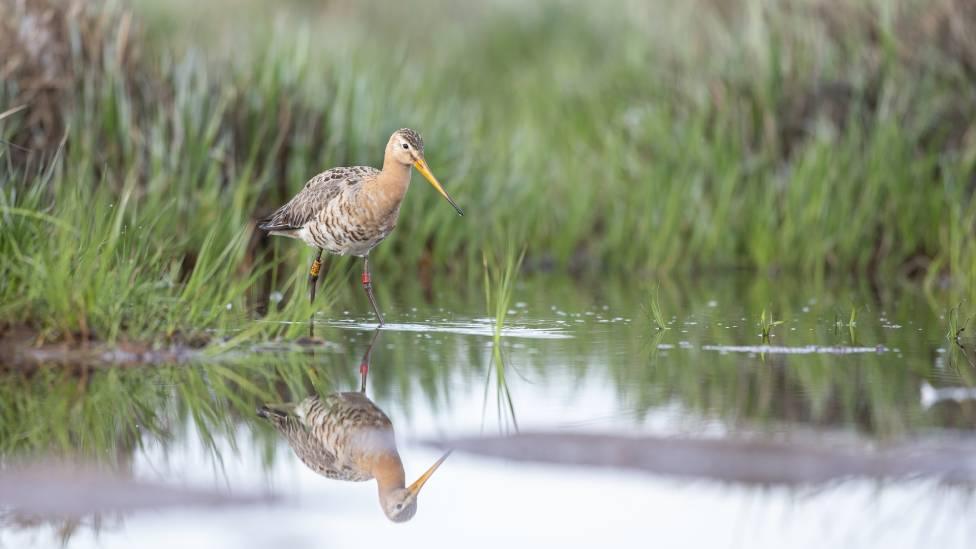National parks: Rapid change needed to protect beauty spots
- Published
- comments
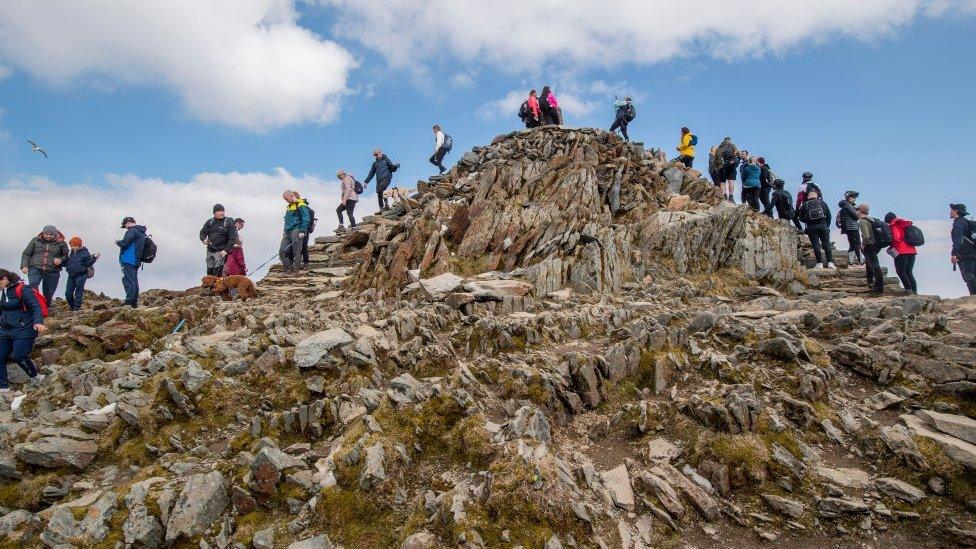
There has been a big growth in the number of visitors to Wales' national parks since the start of the pandemic
Rapid changes are needed to make Wales' national parks more sustainable, the boss of one park has said.
Catherine Mealing-Jones, of Brecon Beacons National Park Authority, said an increase in visitors to beauty spots since the first lockdown had put "tremendous pressure" on communities.
She added that influencing visitors more effectively and closer working with public services could help.
New park schemes are also being tested to ease the strain on the environment.
Ms Mealing-Jones also said parking and anti-social behaviour remained key challenges.
Since the first lockdown restrictions were eased, Snowdonia, Brecon Beacons and Pembrokeshire national parks have seen huge spikes in tourist numbers, which overwhelmed their ability to cope at times.
A report on sustainable tourism in Wales' national parks, which was published in June by the auditor general, found there were ongoing and longstanding problems with the local infrastructure in the respective areas.
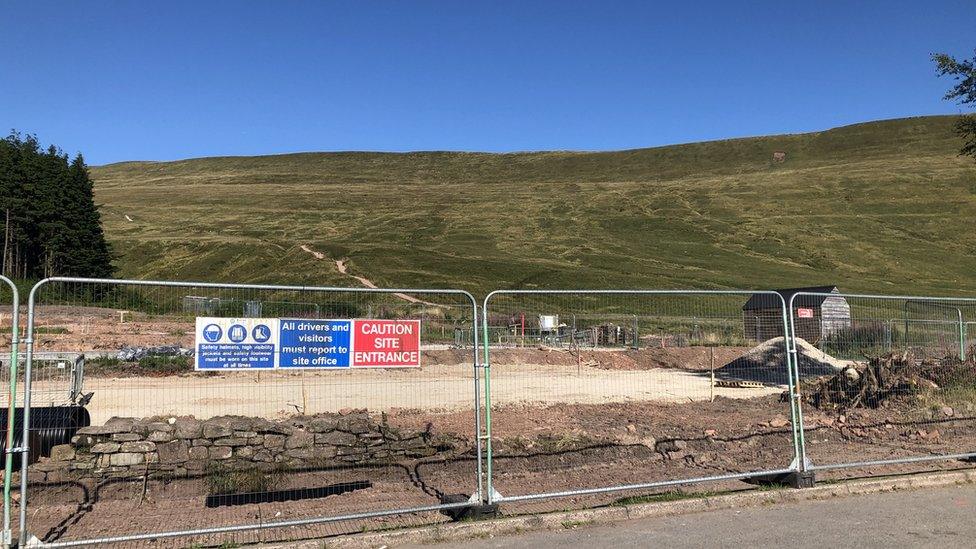
A car park is being created to ease problems near Pen Y Fan
Ms Mealing-Jones said: "Our whole approach as to how we manage these landscapes needs to change pretty rapidly [and] how we take our communities with us as well.
"We've seen rises in people barbecuing on the hillside, off-road biking and wild camping.
"I think it's not necessarily about having more powers but it's about how you influence people not to do that in the first place.
"There are authorities like the police and fire and rescue who have powers to deal with that and we need to work alongside them."
New schemes to ease pressures on the local environment include piloting a park-and-ride scheme for Pen-y-Fan and creating a car park and cafe at the Brecon Beacons attraction.
Similar parking challenges in Snowdonia have been well-documented.
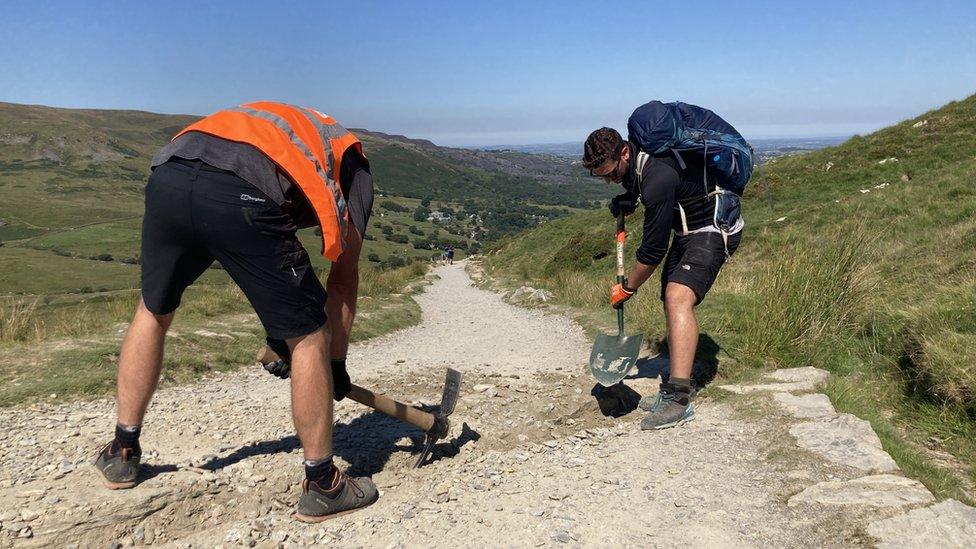
Repairs are made to a path in Snowdonia
Snowdon warden Alun Jones said: "We get around 600,000 people visiting a year and that's been increasing by about 50,000 people a year.
"Snowdonia can't sustain the number of people we saw during lockdowns so we don't really want to see that again.
"We've seen a lot more issues with wild camping and we do tend to see barbecues being lit up on protected areas such as heathland.
"Before Covid-19 we didn't see it as busy as this on weekdays, and weekends are really busy."
To overcome some of the problems with illegal parking and overcrowding along some mountain routes, the park has recently introduced new measures such as a booking system for parking at Pen-y-Pass, which is the most popular starting point for ascending Snowdon.
Pembrokeshire Coast National Park Authority shares similar challenges, but unlike Snowdonia and the Brecon Beacons, it said the 186 miles ( approx 299km) of coastline it manages allows it to "spread the load" of visitors.
TYF Adventure in St David's provides outdoor adventure activities along the coastline and educates visitors on the local environment.
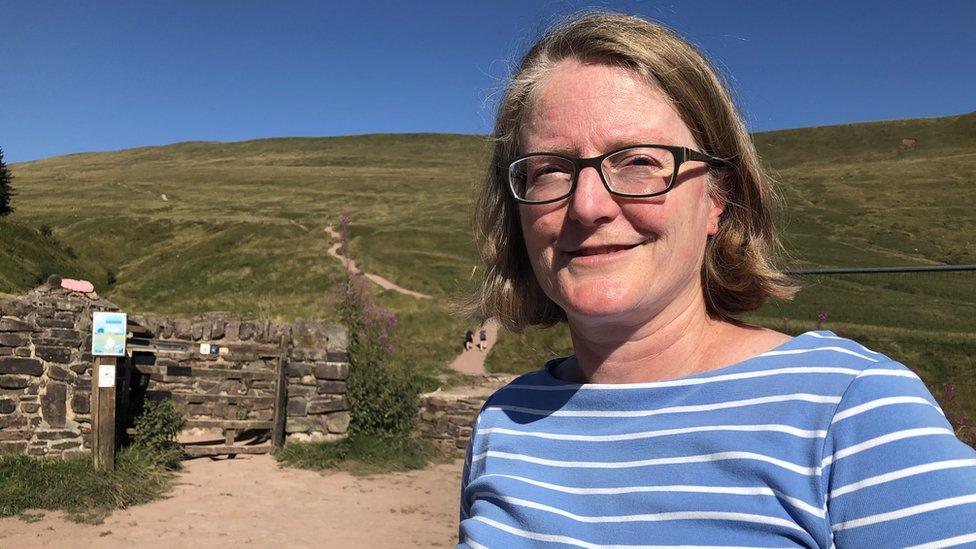
Catherine Mealing-Jones says there is a need to change the way parks deal with the environment and local communities
Head guide James Charlesworth said: "We live in a really spectacular spot but it also comes with its dangers and unless you're informed of the dangers then they can be really dangerous.
"Until you start spending more time here and doing it with the right people who can share that information, are you able to make decisions on where it's appropriate or not appropriate to go."
Related topics
- Published25 May 2022
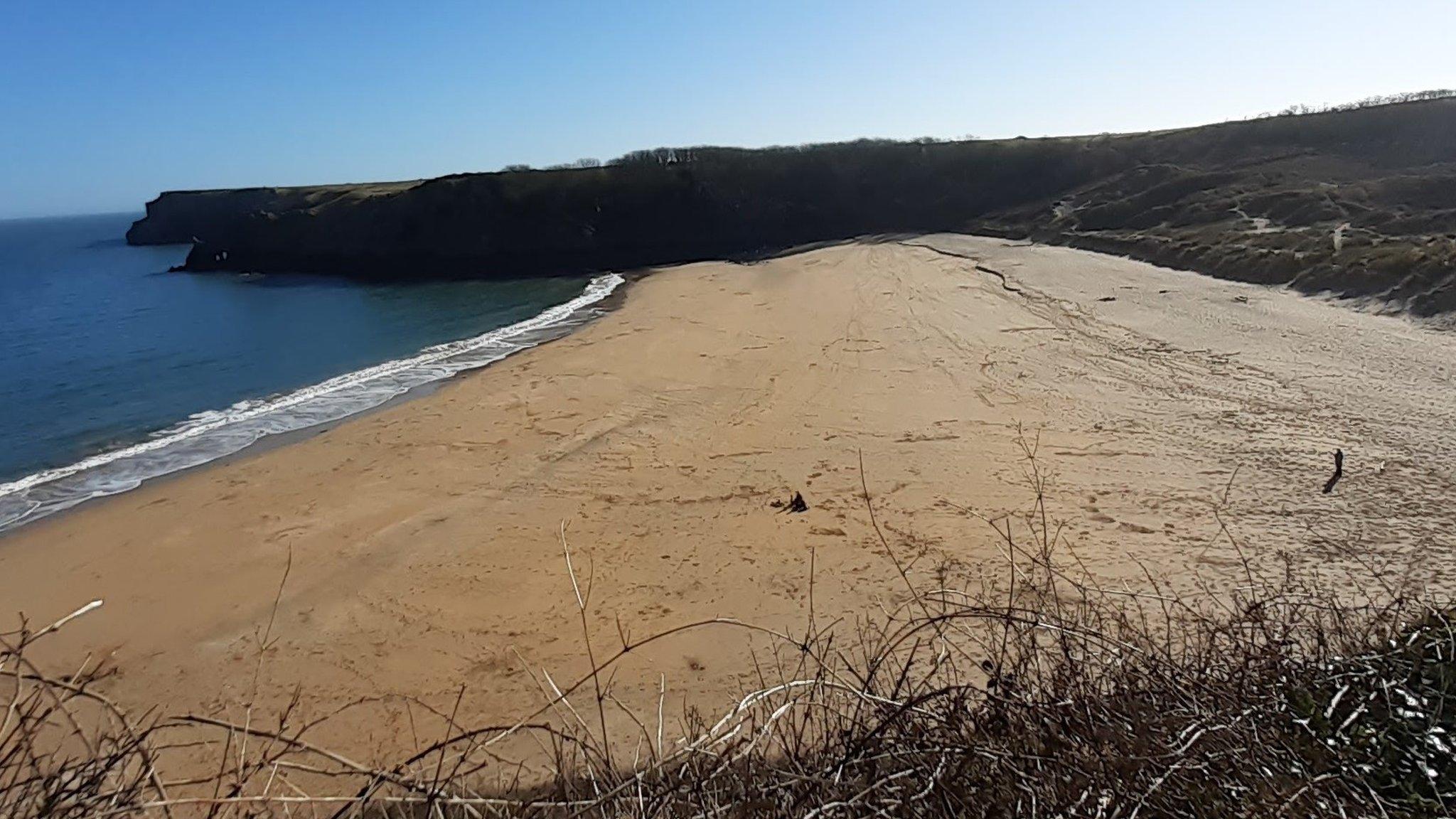
- Published20 April 2022
